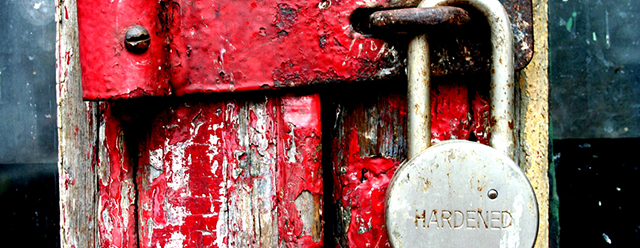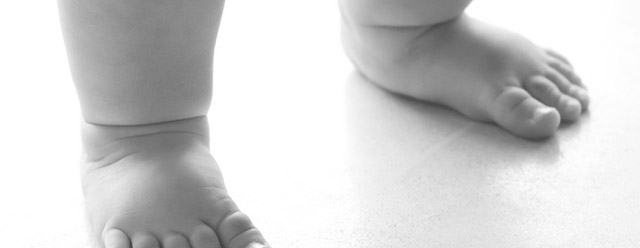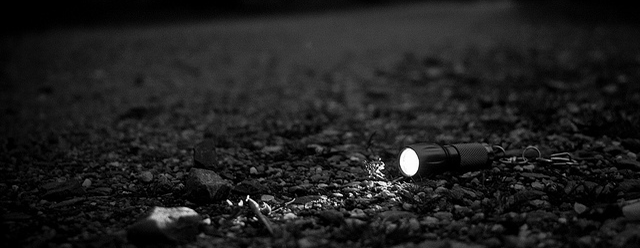
by Tara Joyce | Nov 11, 2015 | Self/Business Growth

We, as humans, have a tendency to use our mind to negate our emotions. We use our mind as a tool to abandon how we feel.
I know, personally, I often use my mind to abandon my negative feelings, especially when they are directed at someone I love. In these moments, I’d rather pretend the feelings aren’t there… than explore why they are. The result of doing this, of locking up my sensitives in my logical mind, is that I disown my feelings and my emotional needs.
For some of us, we negate our feelings or emotional needs because we feel the expression of them is dangerous. Our emotions feel too vulnerable and the sharing of them feels to risky. Rightfully, risks are present when we share our most vulnerable self — but hiding our feelings from others is far more dangerous. For it leads us to mask our feelings, not only for others, but from our self. Rather than feel what we feel, we learn to abandon ourselves emotionally. We learn to negate what we feel and to lock it up in our mind. This lack of emotional self-awareness, and this mental overemphasis, further disconnects us from our self — and others.
We owe it to our emotional self to break our cycle of self-abandonment.
Emotional self-abandonment may feel safer — but it is no less painful than our own emotional truth — and it is all the more detrimental. For in not being present to our selves, we become slightly lost.
However, by acknowledging our logical desire to negate our feelings, we begin to break this cycle. Simply in seeing our abandonment, we cease our pattern of turning our back on our feelings. For recognizing our neglect enables us to be present to our emotional self once again, and within this awareness, we find we no longer need to leave any part of ourselves out again.
photo credit: gingher

by Tara Joyce | Aug 21, 2015 | Self/Business Growth

The first step… It’s the most exciting and scary moment. It’s the moment when you become aware of the problem… And it’s the moment when you begin to solve it.
Becoming aware of the problem is the beginning of your solution. Awareness is your first step. In simply recognizing the dirt and muck, you’re growing. There are so many who are not even yet willing to look there and recognize it. You, however, are. In seeing it, you’re already working on rising above it. You’re already taking a huge step.
Your unconditional worth can only be discovered when you take this first step. Self-awareness is necessary if you are to expand fully into the world.
It’s an exciting moment each time you find yourself taking this step (again) for the first time. In seeing the problem, you’re entering into a solution about to unfold. It’s the first step in a thrilling adventure into knowing and loving yourself better.
photo credit: Thomas Leth-Olsen

by Tara Joyce | Sep 30, 2014 | Cultural Creativity

We don’t really have a problem with peoples imperfections. We don’t really hate the dark aspects we each contain. It feels like we do, but our feelings can be misleading sometimes.
It’s easy to point out and judge another for the things that aren’t perfect about them. If you decide to take on this job, your list will easily become a mile long. We are not perfect, and you’re always going to be able to find evidence to back this truth up. No matter the person.
What you really have a problem with, when you find yourself angered by another and their imperfections become so glaringly obvious to you, is the lack of responsibility you feel that person has over them. Your pissed because they are not being aware of the dark things about themselves and their behaviour, and how it affects you. You feel they are not being responsible in their doing.
If I was to own my darkness and be up front and responsible for the ways in which I am imperfect and how they affect you, how would that change your anger towards me, and towards the imperfections I hold? In my experience, you no longer mind my imperfections so much, nor judge them so harshly, because I am aware of them and responsible to them. It wasn’t my darkness that was getting you, it was my lack of responsibility towards it.
If I own my stuff, if I am aware and shine a light on my darkness and admit my contributions, you may be left with some anger towards my actions, but in owning my part I’ve created the space for you to own yours and/or move on. In being responsible for my imperfections, I’m not in conflict with you over them. I am free to admit what I did and who I am.
When I own my darkness, does it not make it harder for you to hate and blame me for it?
photo credit: Sergio García Moratilla

by Tara Joyce | Apr 26, 2013 | Personal Branding

My point-of-view matters.
Who am I?
Why am I here?
These questions matter to my personal brand.
The answers not so much. It’s not really about them. My value lies in the asking, in the questions.
Exploring my distinct point-of-view is good for me, and it’s good for business.
For knowing I matter matters deeply.
I am contributing to my brand’s wealth whenever I focus on discovering more about what makes me uniquely and invaluably me.
I can hear my point-of-view when I listen inwards, and when I listen to what is reflected back at me by my marketplace and my community.
Through these acts of asking and listening, I am uncovering my voice, and what’s inside of me and my brand. I am coming to understand why my point of view matters.
The more I grow to I understand my voice, the more clearly I can communicate it, and the better you can connect with it.
It’s brand magic. Made by me and my curiosity towards how I uniquely add value to the world.








